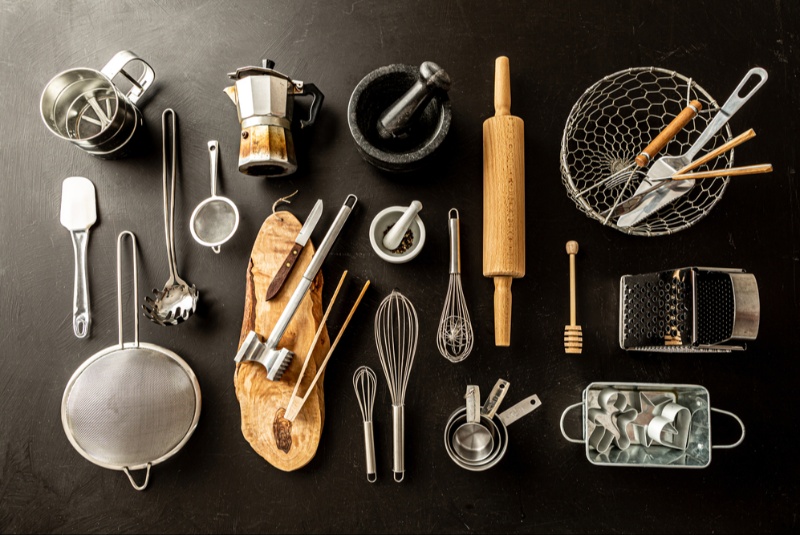Selecting the best specialty coffee beans can significantly elevate your coffee-drinking experience, providing rich, nuanced flavors that are often absent in regular coffee. With a plethora of options available, understanding how to choose the right beans can be daunting. This comprehensive guide offers essential tips and insights to help you select the best specialty coffee beans, ensuring each cup is a delightful and flavorful experience.
Understanding Specialty Coffee
Specialty coffee refers to the highest quality coffee beans, typically scoring 80 points or higher on a 100-point scale by the Specialty Coffee Association (SCA). These beans are meticulously grown, harvested, and processed to bring out their best characteristics. Specialty coffee focuses on quality, sustainability, and traceability, often involving direct trade practices. Understanding specialty coffee ensures you appreciate the superior taste and ethical practices behind each cup, enhancing your overall coffee experience.
Knowing Your Flavor Preferences
Identifying your flavor preferences is crucial when selecting specialty coffee beans. Coffee flavors range from fruity and floral to nutty and chocolaty, with various levels of acidity and body. Think about whether you prefer bright, acidic notes or rich, full-bodied flavors. Experiment with different flavor profiles to discover what you enjoy most. Knowing your flavor preferences ensures you choose beans that cater to your taste, making your coffee experience more enjoyable and satisfying.
Considering the Origin of the Beans
The origin of coffee beans significantly impacts their flavor profile. Different regions produce beans with distinct characteristics due to variations in climate, altitude, and soil. For example, Ethiopian coffees are known for their fruity and floral notes, while Colombian coffees offer a balanced, nutty flavor. Central American beans often have bright acidity and citrus notes. Considering the origin of the beans helps you select coffees that align with your preferred taste profile, providing a diverse and enriching experience.
Evaluating the Coffee Bean Variety
Coffee beans come in various varieties, each contributing to the flavor and quality of the coffee. The two main species are Arabica and Robusta, with Arabica being more prevalent in specialty coffee due to its superior flavor and complexity. Within Arabica, there are numerous varieties like Bourbon, Typica, and Geisha, each with unique characteristics. Evaluating the coffee bean variety ensures you choose beans that offer the flavor complexity and quality you seek in specialty coffee.
Checking the Roast Date
Freshness is key to enjoying the full flavor potential of specialty coffee beans. Check the roast date on the packaging and aim to use the beans within two to four weeks of roasting. Freshly roasted beans retain their aromatic oils and complex flavors, which degrade over time. Avoid beans without a clearly labeled roast date, as this indicates a lack of transparency. Checking the roast date ensures you enjoy fresh, flavorful coffee that highlights the beans' unique characteristics.

Understanding Roast Levels
Roast levels significantly influence the flavor profile of coffee beans. Light roasts retain more of the beans' original flavors, often highlighting fruity and acidic notes. Medium roasts balance the beans' natural flavors with the roasting process, offering a more rounded and caramelized taste. Dark roasts emphasize the roasting process, resulting in bold, smoky flavors with lower acidity. Understanding roast levels helps you choose beans that match your flavor preferences, enhancing your coffee experience.
Considering Processing Methods
The processing method used on coffee beans affects their flavor and quality. Common methods include washed (wet) processing, natural (dry) processing, and honey (semi-washed) processing. Washed beans have a clean, bright flavor with high acidity, while natural processed beans offer fruity and sweet notes with a heavier body. Honey processed beans combine characteristics of both, with balanced sweetness and acidity. Considering processing methods ensures you select beans that align with your preferred flavor profile and taste.
Exploring Ethical and Sustainable Practices
Supporting ethical and sustainable coffee practices benefits both the environment and the communities involved in coffee production. Look for certifications such as Fair Trade, Rainforest Alliance, or direct trade relationships, which ensure fair wages and sustainable farming practices. Some specialty coffee brands provide detailed information about their sourcing practices, including the farmers they work with. Exploring ethical and sustainable practices ensures your coffee choices contribute to a positive impact on the industry and the planet.
Reading Reviews and Seeking Recommendations
Customer reviews and expert recommendations can provide valuable insights into the quality and flavor of different specialty coffee beans. Look for detailed reviews that discuss flavor notes, aroma, and overall satisfaction. Professional reviews and coffee competitions, such as the Cup of Excellence, offer in-depth analysis and ratings. Additionally, seek recommendations from friends, family, or online coffee communities. Reading reviews and seeking recommendations ensures you make an informed decision based on real-world experiences and expert opinions.
Testing and Tasting Different Beans
Experimenting with different coffee beans is essential to finding your preferred flavors. Purchase small quantities of various beans and use consistent brewing methods to compare their flavors. Take notes on each coffee's aroma, acidity, body, and aftertaste to identify what you enjoy most. Tasting different beans helps refine your palate and enhances your understanding of specialty coffee. Testing and tasting different beans ensures you discover a range of flavors, enriching your coffee-drinking experience.
Considering Grind Size and Brewing Methods
The grind size and brewing method significantly affect the flavor and extraction of coffee. Specialty coffee beans can be brewed using various methods, including espresso, pour-over, French press, and AeroPress. Each method requires a specific grind size to achieve optimal extraction. For example, espresso requires a fine grind, while a French press uses a coarse grind. Considering grind size and brewing methods ensures you choose beans that suit your preferred brewing techniques, enhancing the quality of your coffee.
Storing Coffee Beans Properly
Proper storage of coffee beans is crucial to maintaining their freshness and flavor. Store beans in an airtight container away from light, heat, and moisture. Avoid storing coffee in the refrigerator or freezer, as temperature fluctuations can affect the beans' quality. Use a dedicated coffee canister with a one-way valve to release carbon dioxide while keeping out oxygen. Storing coffee beans properly ensures they retain their aromatic oils and flavors, providing consistently fresh and delicious coffee.
Supporting Local Roasters and Cafes
Supporting local coffee roasters and cafes not only benefits your community but also offers access to freshly roasted beans and expert advice. Local roasters often source high-quality beans and roast them in small batches, ensuring freshness and flavor. Building relationships with local roasters and baristas can provide personalized recommendations and insights into new and exciting coffee varieties. Supporting local roasters and cafes ensures you enjoy fresh, high-quality coffee while contributing to the local economy.
Selecting the best specialty coffee beans involves understanding the fundamentals of specialty coffee, knowing your flavor preferences, and considering factors such as origin, variety, and roast levels. Evaluating processing methods, exploring ethical practices, and reading reviews further guide your decision. Testing different beans, considering grind size and brewing methods, and proper storage ensure you enjoy the full potential of your coffee. Supporting local roasters enhances your coffee experience and community. Use this guide to navigate the diverse world of specialty coffee, ensuring each cup is a delightful and enriching experience.




